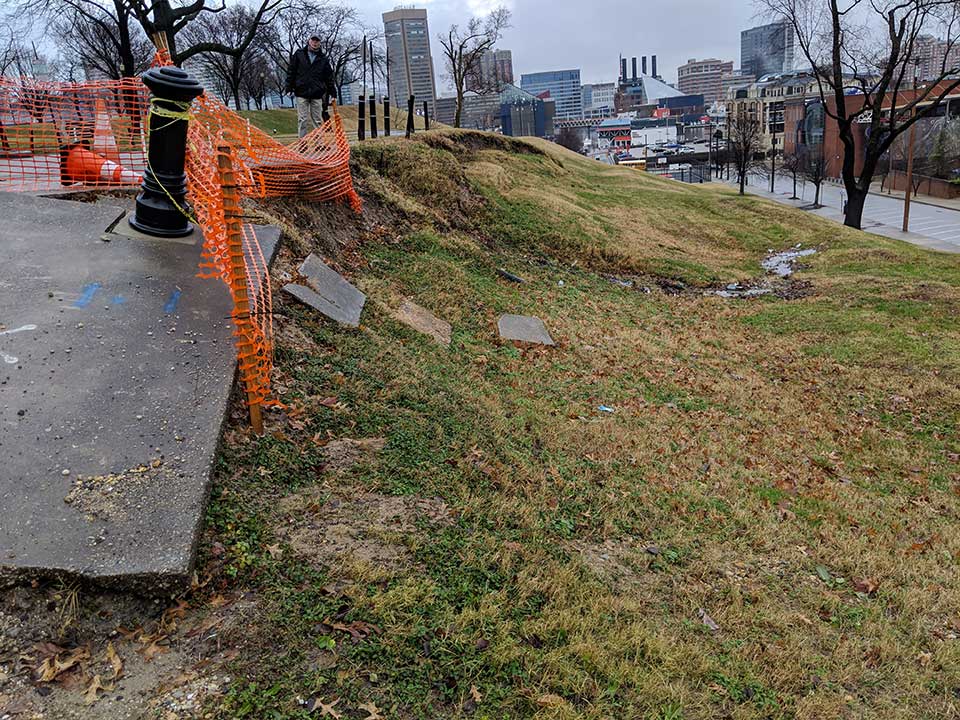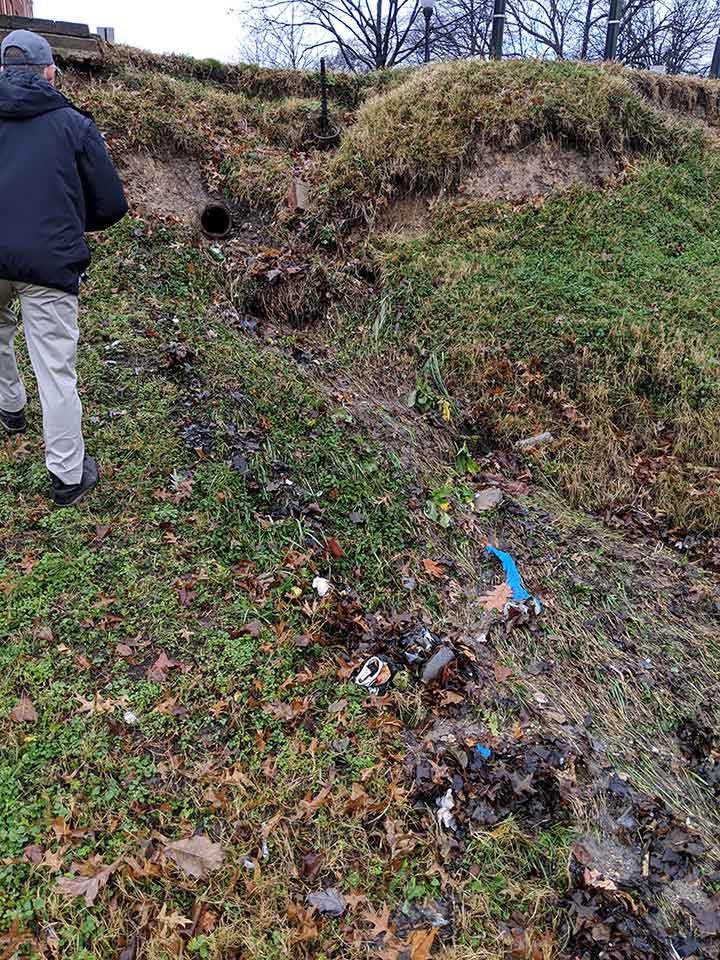Show Notes
Eric Klein, PE, DGE, FASCE is a Senior Manager in the Geotechnical group at RK&K. We sat down with Eric to discuss all things Geotechnical Engineering – how Eric started his career, what makes Geotech different, the future of the industry, and advice for students who want to get into Engineering.

Eric Klein | Sr Manager, Geotechnical | Baltimore, MD
Eric attended Iowa State University and considered majoring in history, because he liked history, but he wasn’t quite sure what he would do with it as a career and figured history might make a better hobby than a career.
In searching for something more technical, Eric looked at structural engineering, aerospace engineering and nuclear engineering, but he decided structural engineering would give him the most time outdoors and the challenges looked interesting. Eric said, “I took my first Structures design course at the same time I took my first Geotechnical design course, and they were entirely different worlds. You would think you were talking two different planets! I just liked the Geotechnical experience a lot better.” We actually had essay exams in that class and had to actually understand geology and the engineering including structural.
Geotechnical Engineering deals with soil and rock behavior from an engineering perspective. It involves assessing slope stability and the risk of landslides and rock falls and how structures such as buildings, bridges and retaining walls interact with the soil and rock. Geotechnical Engineers use scientific methods, basic engineering mechanics, and principals of engineering to collect and interpret the physical properties of the ground for use in building and construction. Geotechnical Engineering is unique in this regard.
“I think one of the things that really makes Geotech unique is that it’s more about risk reduction, because we have to explore the subsurface conditions of a project and try to figure out how it’s going to respond to whatever we’re going to build, whether it’s a retaining wall, an embankment, a cut slope, an excavation, a bridge or whatever.” Eric explained. “Sometimes it takes a lot of creativity to estimate how to make predictions, how that site’s going to respond. It takes a lot of creativity. There’s a lot of options: you could lighten the load; you could improve the resistance. Either way, we have to understand geology. We must understand construction, and we must understand the structural and other engineering disciplines behind what we’re doing. We don’t necessarily have to do the Structural Engineering, but we must understand it.”

Slope failure in Federal Hill in Baltimore, MD.
Eric enjoys tackling technical challenges. He said, “I really enjoy getting into something where there’s a lot of soil structure interaction where we have to use finite element modeling software such as PLAXIS, for example. It’s a rather sophisticated program, which is, I believe, one of the things that sets us apart from most geotechnical firms.”
Though the Geotech group at RK&K is relatively small at approximately 25 people in three offices, Eric described what makes our group different than our peers. “The whole industry is bifurcating. You’ve got commodity level work, like your typical sewer line, typical residential street, one- or two-story buildings. I’ve worked for firms where they would you take out the old report, change the address, change the project name, look on the page where I have a bearing capacity and make sure that number is right, and ship it right out the door. We’re not like that; we are a multi-disciplinary company. We’re constantly exposed to the different disciplines, and we work hard to support them by providing what they actually need from us.” The engineering challenges vary too much to copy and paste technical solutions to new projects.
Currently in the world of Geotech, the focus is on a lot of reconstruction projects. Infrastructure that was built in the 20s to the 70s, even the 80s is worn out and needs to be replaced, or it is now functionally obsolete.
Eric explained. “It’s very challenging to try to replace those old infrastructures with new infrastructure, because it still must function. It’s like changing your clothes completely without ever leaving an inch of your body exposed.”
When asked about the future of the Geotechnical Industry, Eric said he would like to use more sophisticated software like Building Information Modeling (BIM). When working on more complex projects with complicated geometry of walls, the three-dimensional models these programs create are extremely helpful.
Eric also stressed the importance of communications in Engineering. Engineering students are focused on math and solving problems and are not completely aware that the technical aspect is just a piece of the puzzle. Clear communications are vitally important skills in the Engineering profession, because engineers spend a lot of time explaining to the client and other design team members what they did and what needs to happen next. There is also a great deal of writing involved. “Take every writing class you can. I can teach math, I can teach engineering, I can’t teach English,” Eric recommended.

Slope failure in Federal Hill in Baltimore, MD.
Outside of the office, Eric is involved with several professional societies. He joined ASCE when in college. He was looking for something outside academics to broaden involvement with the engineering community. He was treasurer for some projects and has kept his membership. Today, Eric is an ASCE Fellow. He joined National Council of Examiners for Engineering and Surveying (NCEES) as a Subject Matter Expert (SME) in 2000 and was chairman for the Geotechnical committee from 2004 to 2019. Now he is the vice chair of the Civil committee.
Eric is also a Diplomate of Geotechnical Engineering (D.GE). The process to become one is long and the application is tedious. You need to be a Professional Engineer (PE) for at least eight years, have a master’s degree, recommendations from three other DGE’s, and take an oral exam. The application takes a long time to put together. “It’s like a major proposal that we work on,” Eric remarked.
Similar to most Engineers, Eric’s favorite part of what he does is being able to drive around and see projects that he worked on. Eric said, “It’s fulfilling to see your hard work come to life and improve the communities where we live and work.”
